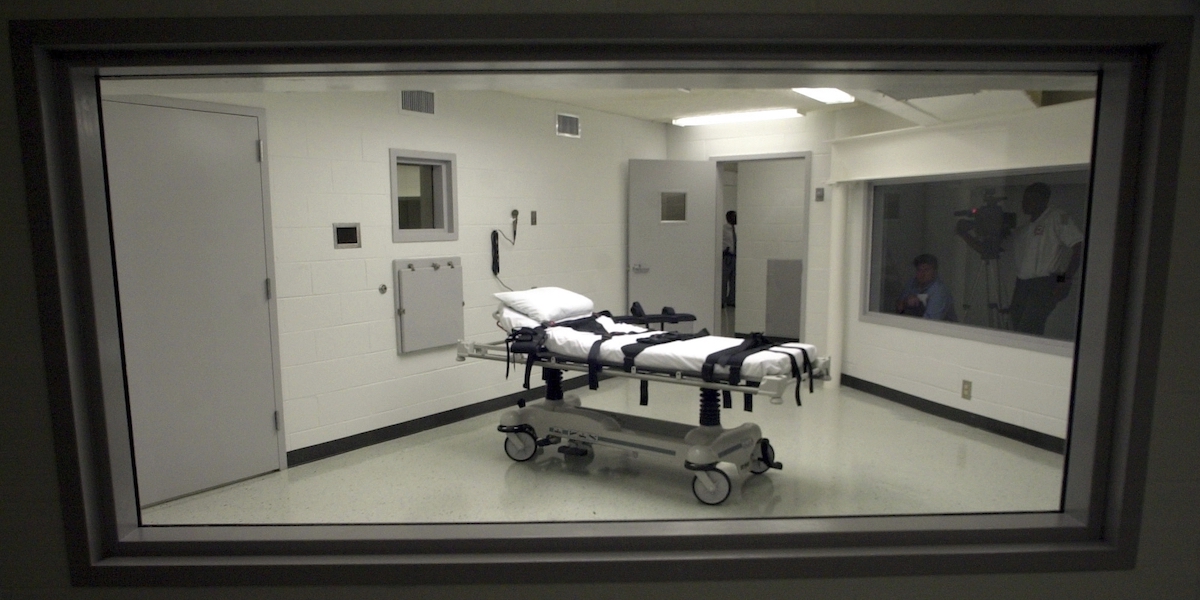The death penalty on Jimi Barber, a 64-year-old inmate convicted of robbing and then killed hammering a 75-year-old woman in 2001. Barber’s execution will be the first after a halt in executions that began in Alabama in November after two cases in which inmates survived sustained failures in lethal injection. In both cases, the executioners had tried for hours to insert the needle into the arms of the two condemned men without success.
While in the last several years States Americans abolished the death penalty, the Alabama government had begun a review of its implementation procedures, to make sure they were effective and worked better than before.
In Alabama the death penalty exists from the nineteenth century and the current Republican governor, Kay Ivey, is a staunch supporter of its importance: on several occasions, even announcing the suspension of executions and the review of the methods by which they are implemented, she has maintained that having certain and effective is the best response “to the victims and their families”.
Until 1927, the principal method of carrying out the death penalty in Alabama was hanging, later replaced by the electric chair. Now the death sentences are carried out predominantly through lethal injectionsfirst of sedatives and then of rocuronium and potassium chloride, two substances which, with particular dosages, paralyze the muscles and cause cardiac arrest.
In Alabama 2022 has become known as «the year of the wrong executions». In addition to the two bankrupts, some prisoners Alan Miller e Kenneth Smithanother execution, that of Joe Nathan James, succeeded after three hours of attempts in which the operators looked for the vein of the prisoner, meanwhile tied to the execution table. In the cases of Miller and Smith, the operators had to stop at midnight, when the warrant for the execution of the death penalty, valid only for that day, expired.
Alabama has some of the strictest rules in the United States regarding the confidentiality of death penalty execution protocols and knowing exactly what happened during those hours and why the operators were unable to carry out the execution is not possible. In Miller’s case the operation was failure attributed to his overweight and heavy build, which would have made it difficult to find the vein. Other cases of failure have been attributed to the advanced age of the detainees, or to disability.
In Barber’s case, the operators will be given 12 hours of time instead of 6, as foreseen up to now: concretely it means that Barber could remain tied to the execution table for half a day, until he is killed. Governor Ivey has also introduced a change in the duration of the execution mandate: until January of this year it lasted 24 hours, now the local government will establish its duration. In Barber’s case it will last 30 hours, all of July 20 and the first six hours of the 21st, but the start of the performance for now is scheduled for six in the evening of July 20.
In a formal request where yes they quoted Alabama’s many problems with lethal injections, Barber he had asked to be killed with nitrogen hypoxia, a practice which consists in making the convict inhale only nitrogen thus killing him for hypoxia, i.e. lack of oxygen, which is legal in the United States but has never been tested. His lawyers have specified that Barber weighs a lot and has a very massive build, and it might not be easy for the workers to immediately find the vein for the injection: so far, however, the Alabama Attorney General has expressed many objections, arguing that there is no are still all means necessary to proceed with nitrogen hypoxia.
Meanwhile, in recent days, the United States has been discussing the new procedures for executing the death penalty in Alabama. The review was made during the suspension of executions, introduced in November and lifted on February 24, and has been widely criticized for its lack of transparency.
Unlike what was done in Oklahoma in 2014 or in Tennessee in 2022, in both cases by two Republican administrations as in the case of Alabama, Governor Ivey did not appoint an independent body to carry out the review, but she had the Alabama Department of Corrections itself, the government agency which runs the state prison system, essentially asking an institution to evaluate itself. Last February, more than 170 pastors and preachers in the United States sent an open letter to Ivey asking her to commission an independent body. Furthermore, after the investigation was concluded, the Alabama government did not even give news or disclose details on its results.
The little that is known is due to a letter sent to Ivey by Jon Hamm, the commissioner of the Alabama Department of Corrections, in which Hamm praised Ivey and listed a series of areas that the revision of the procedures would have explored: among these , the ways in which prisoners’ appeals against their own executions are handled, the education, training and equipment necessary for the personnel to carry them out and the number of employees. Hamm wrote that new officials were hired, additional training was arranged, and additional equipment was purchased to effectively carry out the death sentences.
Ivey has long argued that having effective death sentences is the best way to do justice to people who have suffered the crimes for which the convicted are responsible, without taking into consideration the experiences of reconciliation that in some cases have occurred between the offended people and the inmates. One case is precisely that of Barber, with whom the niece of the woman he killed in 2001 came into contact, initially through an exchange of letters and also developing a friendship over time, writes l ‘Atlantic. Another case was that of Joe Nathan James, the prisoner killed after three hours of attempts despite the explicit request not to carry out the death penalty by the family of the person he had killed.
